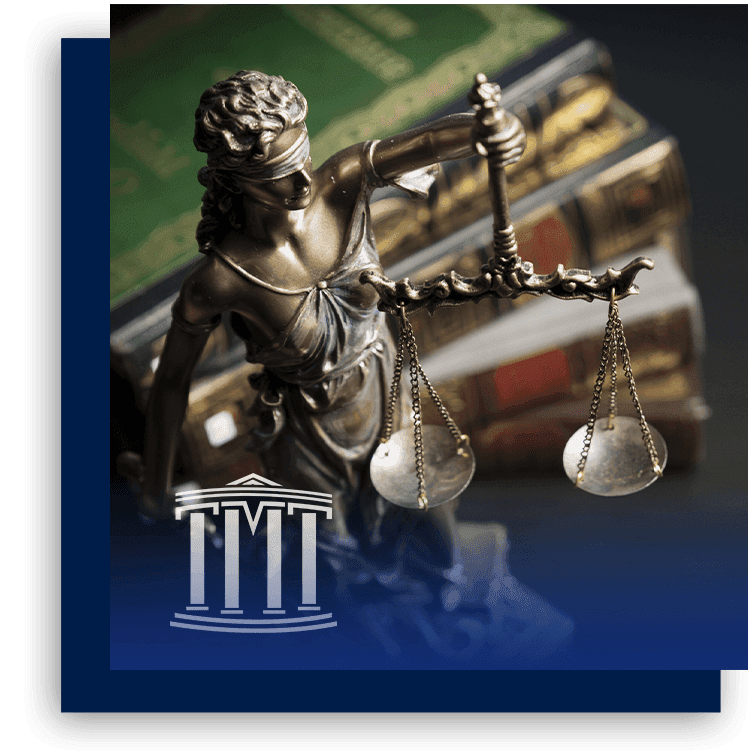
Serving Western North Carolina Since 1994 Get A confidential Consultation
-
“David Teddy and his team are outstanding!!! WORTH EVERY PENNY!”
- Nicholas D. -
“Ralph is the epitome of what a lawyer should be.”
- Melinda R. -
“Daniel Talbert is a top-notch attorney... he has a never-give-up approach even when things look bleak.”
- Roger T. -
“David Teddy was more than worth the money... he actually took the time to listen.”
- Rosslyn S.

What Is Legal Guardianship?
Guardianship is a legal relationship in which the court appoints a person or agency to act on behalf of a minor or an adult who does not have the capacity to make decisions. The person under a guardian’s care is called a ward. Guardianship can involve managing the ward’s personal affairs, property, or both.
Various circumstances might require a legal guardian for an individual. For instance, someone who develops an illness that causes them to lose cognitive function, such as Alzheimer’s disease or dementia, might need a guardian to help them manage their personal affairs and financial assets. A child whose parents die or are unfit to care for them may be appointed a legal guardian so they receive proper care.
In addition, legal guardianship may be appropriate for:
- A minor who receives a large inheritance
- A minor who has been emancipated but has been deemed incompetent
- An incompetent adult
The term “incompetent” simply means someone lacks the legal ability to do something and is not a pejorative.


-
“David Teddy and his team are outstanding!!! WORTH EVERY PENNY!” - Nicholas D.
-
“Ralph is the epitome of what a lawyer should be.” - Melinda R.
-
“Daniel Talbert is a top-notch attorney... he has a never-give-up approach even when things look bleak.” - Roger T.
-
“David Teddy was more than worth the money... he actually took the time to listen.” - Rosslyn S.
Why Hire a Guardianship Attorney in Lincoln County?
The legal process of becoming a guardian in North Carolina can be complicated, time-consuming, and stressful if you try to do it alone. If you hire a guardianship attorney from Teddy, Meekins & Talbert, P.L.L.C., you can count on us to support you by:
- Preparing your guardianship petition and ensuring that it is complete and contains accurate information regarding the ward’s finances and living situation before filing it with the court
- Communicating on your behalf with family members and other stakeholders during the process to resolve any disputes or disagreements that arise regarding the ward’s care
- Protecting the ward’s rights throughout the proceedings
- Reviewing a guardianship if you believe that the ward’s rights are being violated or the guardian is abusing their power
Types of Guardianship in NC
North Carolina has three primary types of guardianships:
- General guardian – In general guardianship, the guardian controls the ward’s finances and personal affairs. This is the broadest type of guardianship, though in some cases, the courts may limit a guardian’s authority.
- Guardian of the estate – A guardian of the estate has power over the ward’s finances and business matters but not the ward’s personal affairs. A guardian of the estate can pay a ward’s debts and expenses, collect income on behalf of the ward, and take other steps to manage the ward’s financial affairs.
- Guardian of the person – In a guardianship of the person, the guardian manages the ward’s personal affairs and sometimes handles custody matters on the ward’s behalf. The guardian’s duties will depend on the ward’s age, ability to care for themselves, and other factors. The four subtypes are guardianship of an adult, guardianship of a minor, guardianship of a child, and guardianship of an elderly adult.
How Can I Become a Legal Guardian?
The process for becoming a legal guardian in North Carolina varies depending on the circumstances, but in general, you will need to:
- Submit a petition to the Clerk of Court in the county where the ward lives. The petition, which you can find online, will need to include an inventory of the ward’s assets and finances, a description of the ward’s situation or disability, and the reason for the guardianship.
- Present evidence to the court for the incompetency hearing. The court will schedule a hearing to determine whether the ward is incompetent. You can present evidence, such as testimony from a treating physician, to prove the ward is not competent. A legal guardian will be appointed if the ward is found to be incompetent.
- Take an oath. Once appointed guardian, you must take an oath to uphold your legal obligations to the ward to the best of your ability.
- Post a bond. Any general guardian or guardian of the estate must post a bond with the court. This bond ensures the guardian does not use the ward’s financial assets for personal gain. The amount of the bond will depend on the specifics of the situation and the complexities of the ward’s estate.
Once the above steps are completed, the court will issue an order establishing legal guardianship. The clerk will provide a letter of guardianship to you, which allows you to begin acting on behalf of the ward.
Contact a Guardianship Lawyer in Lincoln County Today
Becoming a legal guardian can be complicated, time-consuming, and emotional. Fortunately, you do not have to navigate the legal system alone. At Teddy, Meekins & Talbert, P.L.L.C., our experienced and compassionate legal team can help you file your petition and complete the necessary steps to become a guardian in North Carolina. We know that you want what’s best for your loved ones, and we want to help you provide it.
Contact our guardianship lawyers in Lincoln County to discuss the details of your case and learn more about your legal options.

